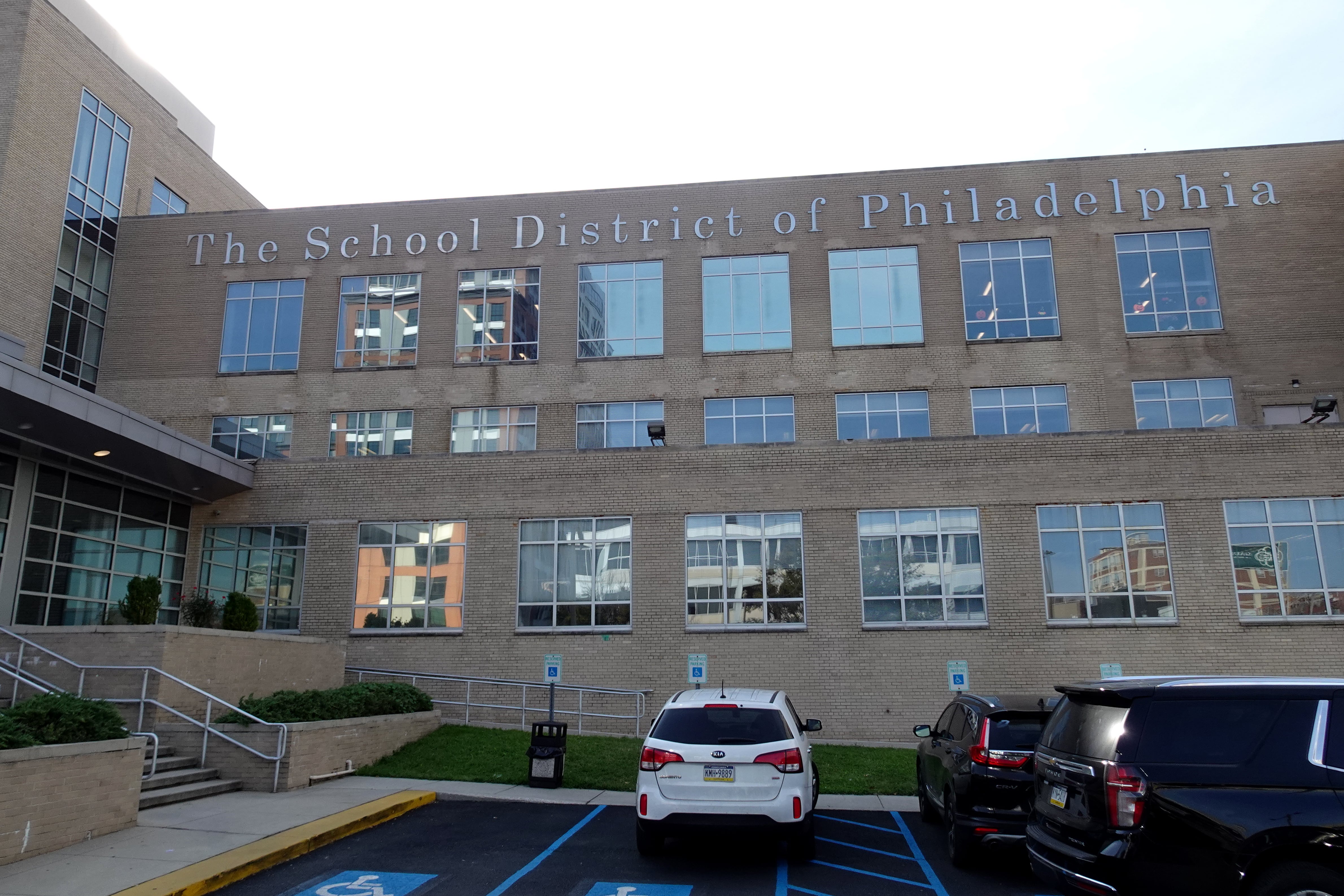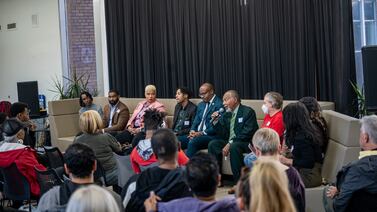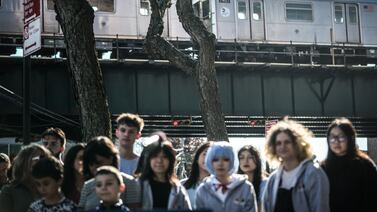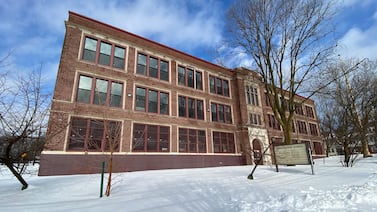A leading community development organization that runs two charter schools will repay the Philadelphia school district more than $3.5 million, according to a settlement approved Thursday by the Board of Education
The payment from Aspira, Inc., ends a yearslong legal dispute between the district and Aspira over whether the district can be required to pay charters for students that exceed their agreed-upon enrollment caps. Antonio Pantoja Charter School and Eugenio Maria de Hostos Charter School both enrolled more students than they had been authorized to for several years between 2016 and 2021 — when they did not have active charter agreements with the district.
In addition, Aspira has agreed to withdraw its application to open two new charter schools in the city, one a K-8 and one a high school. It also agreed not to file a new application to open a K-8 school for five years, but can reapply as early next year to open a new high school.
This is the latest chapter in Aspira’s turbulent history of running charters in the district. Several years ago, the organization had to relinquish charters for two formerly district schools it ran. The schools, Olney High and Stetson Middle School, are now back under district control.
De Hostos and Pantoja, both K-8 schools, have separate boards of trustees, but both are operated by Aspira. The resolution says that de Hostos, which is on North Second Street and enrolls 510 students, will repay the school district $3,163,986 in installments over five years. Pantoja, which is in Kensington and enrolls 700 students, will repay $371,537, also over a five-year period.
It is unclear whether these repayments represent the full amount under dispute or a compromise.
As part of the agreement, both schools have new charters through 2028, with predetermined enrollment ceilings that they signed last week, Peng Chao, head of the district’s charter school office, said in an interview.
The board’s vote on the settlement was 8-1, with Lisa Salley voting no. Calls to Aspira’s office asking for comment were not returned. Aspira Executive Director Alfredo Calderon could not be reached for comment.
Chao did not make a presentation at the meeting explaining the resolution that included the settlement. No board members asked questions or commented on the resolution before voting on it. And no one from Aspira came to speak during the meeting’s public comment period. Board members didn’t respond when Lisa Haver, co-founder of the advocacy group Alliance for Philadelphia Public Schools, asked for a fuller explanation of the resolution.
According to an explanation provided by the Board of Education in its meeting materials, the disagreement centers on the 2018-2019, 2019-2020, 2020-2021 and 2021-2022 school years “regarding the number of students permitted to be enrolled under the Hostos Charter and the Pantoja Charter, respectively.”
De Hostos has been in operation since 1998 and its charter was renewed in 2003, 2008 and 2013. Pantoja opened in 2008 and its charter was renewed in 2013. Both their charters expired, and they refused to sign charter renewal agreements in 2018. Under Pennsylvania’s charter school law, schools can continue operating without an active charter.
During the dispute over enrollment, Aspira and the boards of both schools appealed to the Pennsylvania Department of Education, arguing that the district should give them additional funds for the students above their caps. The agency initially sided with the charters, even though the district “filed multiple objections” and demands for hearings, which led to the negotiations that resulted in this settlement.
As part of the settlement, Pantoja and de Hostos have also agreed to withdraw from a lawsuit now in Commonwealth Court brought by several charter schools over whether the district is paying them the proper amount. The district disputes the way charters account for federal aid, some grant funds, and prekindergarten expenses, saying these practices result in overpayments to them.
Other Philadelphia charter schools still involved in that lawsuit include Esperanza Charter High School and two cyber charters.
Aspira is also withdrawing its applications to open two new charter schools: Aspira Bilingual College and Career Preparatory Academy and Aspira Dr. Ricardo E. Alegria Preparatory Charter School. It will also end any legal appeals related to enrollment at de Hostos and Pantoja that are still pending.
Aspira proposed Alegria as another K-8 school — which the group said would eventually enroll 1,000 students — and the Bilingual College and Career Preparatory Academy as a 1,200-student high school. Aspira agreed not to file another K-8 charter application for five years, but could propose another high school as early as next year.
According to their academic evaluations, based on test scores and other factors, Pantoja and de Hostos perform comparably to — if not slightly better than — district schools.
In 2017, Aspira was forced to surrender the charters for Olney High School and Stetson Middle School. These were formerly district schools ceded to charter organizations in 2011 under the Renaissance school turnaround initiative.
But the School Reform Commission, which then governed the district, cited myriad financial and organizational flaws with how the schools were run. It also determined that Aspira had used state and local per-pupil subsidies to guarantee a $15 million loan to Aspira Community Enterprises, Inc., which had acquired the former Cardinal Dougherty High School building.
At Thursday’s meeting, the board also voted to extend the charters for five years of two schools run by KIPP — KIPP DuBois and KIPP North Philadelphia.
The vote was 8-1, with Salley again the lone vote in opposition. Board member Chau Wing Lam, who voted in favor of extending the two KIPP charters, said that while the academic performance at the schools are “disappointing,” she noted that the decision is based on incomplete information, namely the absence of testing during 2020 and 2021.
The last new charter school approved to operate in the city was Hebrew Public in 2018, when the state controlled the district. Since resuming control of the district that same year, the school board has not approved any new charter schools.
Dale Mezzacappa is a senior writer for Chalkbeat Philadelphia, where she covers K-12 schools and early childhood education in Philadelphia. Contact Dale at dmezzacappa@chalkbeat.org.





